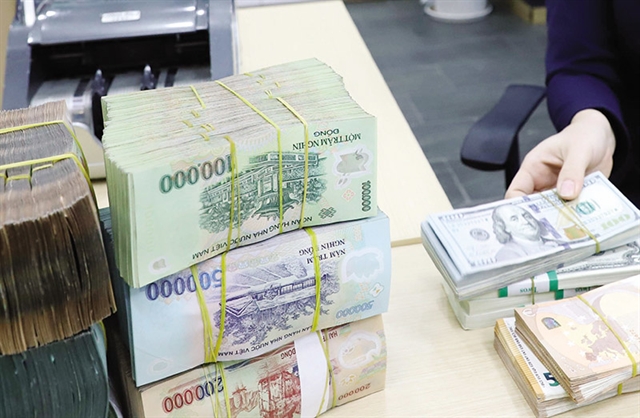According to statistics, 7 banks, including Agribank, Bac A Bank, NCB, MBV, Eximbank, KienLongBank and VietBank, have so far this year increased mobilisation interest rates to attract idle cash flow from the population.

HÀ NỘI — Many banks have promoted capital mobilisation policies right from the beginning of 2025 to improve financial strength and meet the credit demand that is forecast to increase sharply this year.
According to statistics, 7 banks, including Agribank, Bac A Bank, NCB, MBV, Eximbank, KienLongBank and VietBank, have so far this year increased mobilisation interest rates to attract idle cash flow from the population.
Among the banks, KienLongBank on January 15 became the first bank to increase deposit interest rates for the second time in January. Accordingly, KienLongBank’s bank interest rate for 12-month deposits increased by 0.2 percentage points to 6.1 per cent per year.
The adjustment makes KienLongBank to be among 5 banks listing interest rates for the 12-month deposits from 6 per cent per year upward. The four remaining banks include CB, BVBank, GPBank and MSB.
Currently, at least 15 commercial banks have announced deposit interest rates of 6 per cent or more per year, mainly applied for deposits with long terms from 18 months to 36 months. Of which, up to 13 banks are listing interest rates from 6 per cent per year for the 36-month term. The highest deposit interest rate on the market is 6.8 per cent per year applied by Eximbank for online deposits with a term of 24-36 months.
In addition, many banks pay higher interest rates, but have special requirements. To enjoy these rates, customers must meet the conditions on the amount of deposit. For example, PVcomBank customers will enjoy a special interest rate of 9.0 per cent per year when depositing VNĐ2 trillion or more. HDBank also has a particularly high interest rate of up to 8.1 per cent per year for a 13-month term and 7.7 per cent for a 12-month term, with the condition of maintaining a minimum deposit of VNĐ500 billion.
At the end of the year, with many salaries, Tết bonuses and accumulated income during the year, many people still choose to deposit the money at banks to get good profits, in the context that other investment channels are still difficult and gloomy.
According to Trần Khánh Hiền, Director of MBS Research, as credit has surged 2-3 times higher than that of raised capital, banks must promptly increase deposit interest rates to lure deposits to meet the rising capital demand.
This year, the banking industry aims to have a credit growth of 16 per cent. Since the beginning of this year, many banks have promoted lending with preferential credit packages for priority customer groups.
In addition, from the beginning of 2025, the State Bank of Vietnam issued an official dispatch requesting 9 commercial banks to urgently disburse a credit package of VNĐ145 trillion.
According to Võ Hoàng Hải, Deputy General Director of Nam A Bank, customers' credit capital demand in 2025 will improve. In the first quarter of this year, the credit growth potential will be higher than the same period last year because authorities of all agencies and departments have focused on removing difficulties for markets, including the real estate market.
Besides, Hải said, the lending interest rate level for both corporate and individual customers is at a low level, so the demand for consumer loans is expected to increase strongly again.
Banks are also ready to boost lending activities when the economy recovers, including real estate and consumer credit. Besides, credit growth last year was at a relatively high level while the credit growth target set for this year is higher than last year, so there is a lot of room for lending. Therefore, to ensure capital supply for the economy, banks must find ways to attract capital to help ensure liquidity and meet the need to boost credit right from the beginning of the year.
Experts from Việt Dragon Securities Company (VDSC) forecast deposit and lending interest rates may increase slightly by 0.5-1 percentage point, mainly due to the impact of increased capital demand. — VNS
- Tags
- banking





